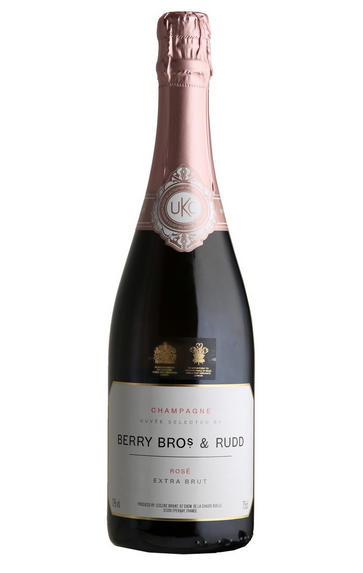
Berry Bros. & Rudd Rosé by Champagne Leclerc Briant, Extra Brut
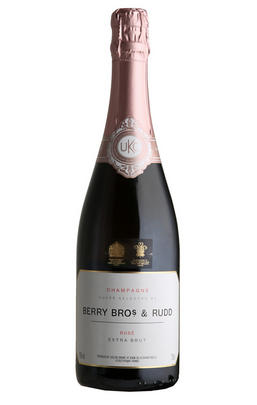
About this WINE
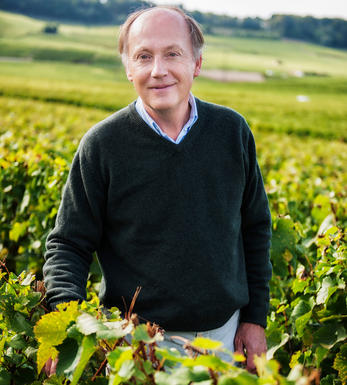
Champagne Leclerc Briant
Champagne Leclerc Briant focuses on organic and biodynamic viticulture, working in harmony with nature to produce some of the region’s most exciting wines.
Lucien Leclerc founded the estate in 1872 in the village of Cumières. In the mid-20th century, in the hands of Lucien’s great-grandson, Bertrand Leclerc, and his wife, Jacqueline Briant, the operation was moved to the beating heart of Champagne, Epernay. Here it also took a new name – Leclerc Briant. Around the same time, the house started practising biodynamic viticulture (becoming one of the first in the region to do so), eventually earning certification in the 1980s.
Since 2012, Chef du Cave Hervé Justin, formerly of Champagne Duval-Leroy, has refined the house style here. Working with organic and biodynamic fruit, he also practises biodynamic principles in the winery. Leclerc Briant has taken on new vineyards, renovated its facilities, and has a renewed, uncompromising focus on quality.
The traditional sparkling wine method here is low dosage, vineyard-specific, and extremely interesting. The popular Abyss cuvée is aged underwater. As of the 2012 vintage, Hervé Jestin and the team are responsible for making the wine at Château d’Avize, which they bottle under the Leclerc Briant label and sell through La Place de Bordeaux.
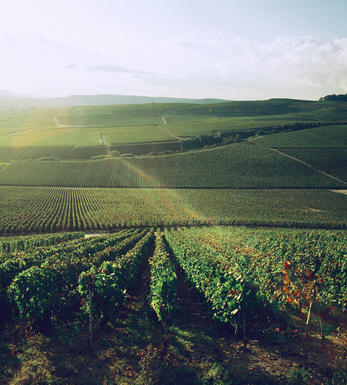
Rosé Champagne
Rosé wines are produced by leaving the juice of red grapes to macerate on their skins for a brief time to extract pigments (natural colourings). However, Rosé Champagne is notable in that it is produced by the addition of a small percentage of red wine – usually Pinot Noir from the village of Bouzy – during blending.
Recommended Producers : Billecart Salmon (Elizabeth Salmon Rose), Ruinart
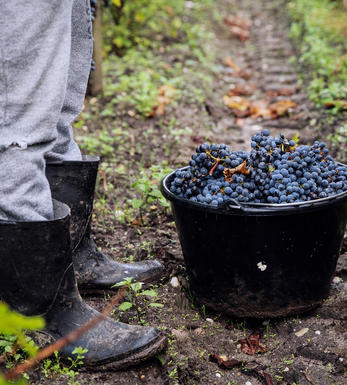
Champagne blend
Which grapes are included in the blend, and their proportion, is one of the key factors determining the style of most Champagnes. Three grapes are used - Pinot Noir, Chardonnay and Pinot Meunier.
26% of vineyards in Champagne are planted with Chardonnay and it performs best on the Côtes des Blancs and on the chalk slopes south of Epernay. It is relatively simple to grow, although it buds early and thus is susceptible to spring frosts. It produces lighter, fresher wines than those from Burgundy and gives finesse, fruit and elegance to the final blend. It is the sole grape in Blancs de Blancs, which are some of the richest long-lived Champagnes produced.
Pinot Noir accounts for nearly 40% of the plantings in Champagne and lies at the heart of most blends - it gives Champagne its body, structure, strength and grip. It is planted across Champagne and particularly so in the southern Aube district.
The final component is Pinot Meunier and this constitutes nearly 35% of the plantings. Its durability and resistance to spring frosts make the Marne Valley, a notorious frost pocket, its natural home. It ripens well in poor years and produces a soft, fruity style of wine that is ideal for blending with the more assertive flavours of Pinot Noir. Producers allege that Pinot Meunier lacks ageing potential, but this does not deter Krug from including around 15% of it in their final blends.


Buying options
Add to wishlist
Description
We are excited to launch this special Champagne Rosé Extra Brut made by our friends at Leclerc Briant, who have been driving innovation in the Champagne region for decades. Biodynamically farmed, the Berry’s Own Selection Champagne Rosé Extra Brut is a stimulating, terroir-focused rosé. Dominated by Chardonnay, this dry and zesty Champagne pairs perfectly with seafood dishes such as langoustines or crab tartlets.
Cellar Plan members enjoy a 10% saving on this wine at checkout.
Tasting note
The Chardonnay (93%) provides citrus, yellow pear and a vibrant mineral line, whilst the Pinot Noir (7%) gives colour and a musky perfume, along with texture, depth and freshness. The mousse is foaming and pure, the finish filled with notes of marzipan and raspberry tartlets.
Drink 2024 - 2028
Davy Żyw, Senior Buyer, Berry Bros. & Rudd
wine at a glance
Delivery and quality guarantee